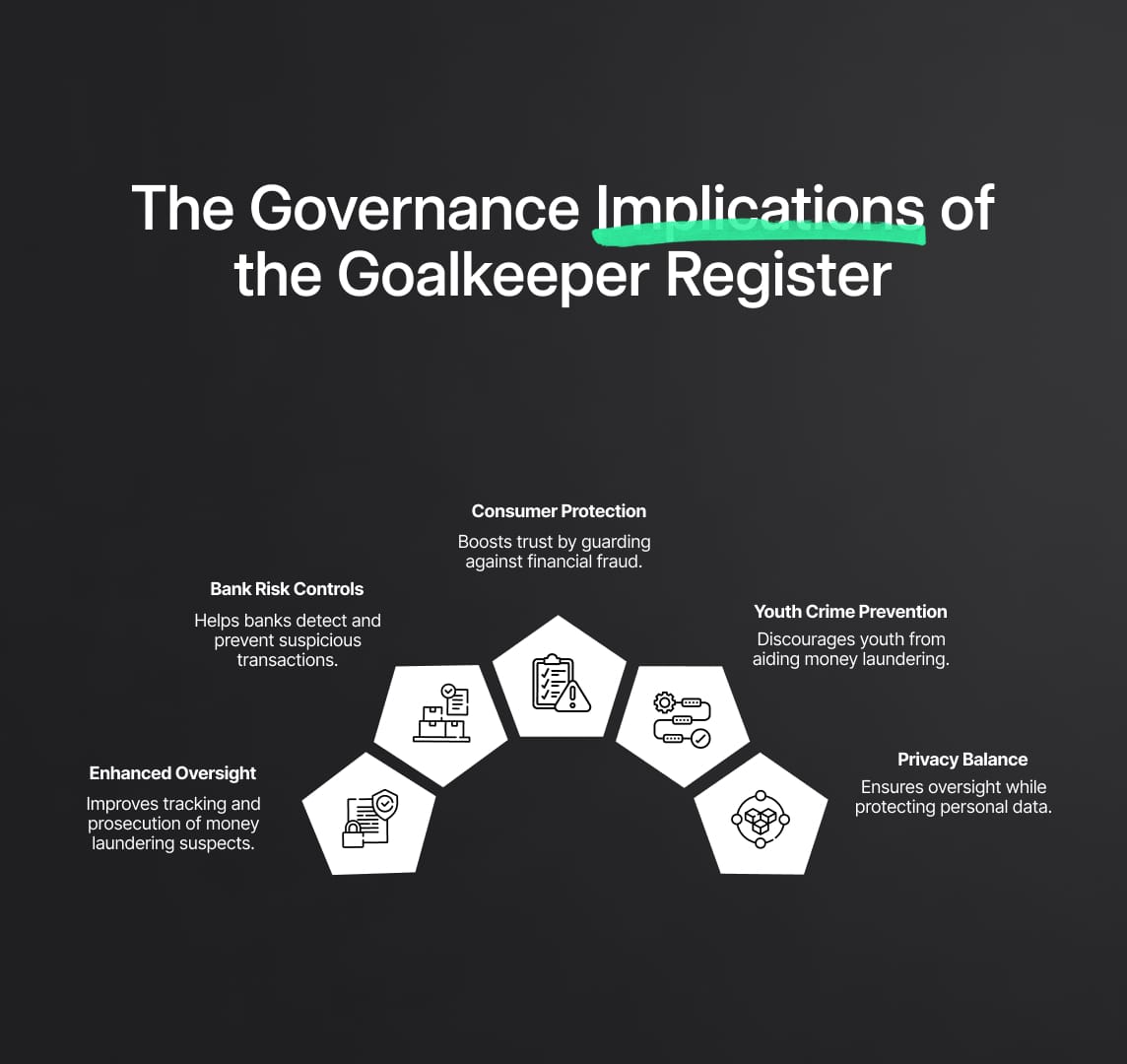Money Laundering: Sweden's Governance Reform
Sweden, known for its proactive governance, is pioneering a strategic response to money laundering via the proposed "goalkeeper register." Championed by the Swedish Bankers’ Association, this innovative framework aims to enhance financial oversight and educate the youth about potential risks.

Sweden's Governance Reform: Goalkeeper Register To Curb Fraud and Money Laundering
To strengthen oversight and prevent money laundering, the Swedish Bankers' Association has proposed the creation of a "goalkeeper register." Acknowledging the growing difficulties associated with money laundering and its deleterious impact on governance, this program aims to improve crime prevention tactics. The Association formally submitted its proposal to the government, highlighting the requirement for a specific registry to monitor money goalkeepers. Money goalkeepers are people who give their bank accounts as channels for the movement, withdrawal, or transfer of funds obtained illegally, especially proceeds from fraud. They play a crucial part in money laundering. Unbelievably, a considerable number of these goalkeepers are juveniles who unintentionally serve as gateways into more established criminal networks. Recent information from the phone scam waves of 2018 and 2019 identified tens of thousands of these goalkeepers in Sweden, dispersed among fifteen different criminal organizations. The Bankers' Association, which advocates for better financial sector supervision, suggests that the Police Authority be in charge of the registration. Moreover, it proposes giving banks the option to take part. The dual goals of protecting customers and outlawing the abuse of institutions for money laundering operations are accomplished by putting this register into effect.

Governance in Financial Institutions: The Swedish Approach to Combat Money Laundering
The hazards and difficulties that institutions face are always changing along with the financial world. Among these dangers, money laundering has become a powerful foe that threatens the foundations of financial control. Problems do, however, also often lead to solutions. Sweden is at the forefront of one such innovation, which is evidence of the country's dedication to strong financial control.
In a daring move to strengthen governance, the Swedish Bankers' Association has introduced the idea of a "goalkeeper register." The goal of this project is to identify and follow people who, whether intentionally or inadvertently, are key players in money laundering operations. These "goalkeepers" frequently utilize their bank accounts as means of transferring, withdrawing, or moving money illegally—including money obtained through fraud.
The Governance Implications of the Goalkeeper Register:
- Strengthened Oversight: The goalkeeper register is expected to improve the accuracy of identifying and tracking those involved in money laundering. Proactive governance is embodied in the ability to prosecute anyone associated with such activities promptly, which is made possible by this increased scrutiny.
- Risk Mitigation for Banks: Banks stand to gain a great deal from the registry as guardians of financial governance. With the help of this sophisticated instrument, they may expedite their risk assessment procedures and remain watchful about transactions, preventing money laundering attempts.
- Consumer-Centric Governance: In addition to its consequences for organizations, the register emphasizes how important consumer protection is to governance. The active protection of consumers against potential financial fraud serves to bolster the faith that people have in their banking institutions.
- Dissuading Youth Involvement: Proactively identifying individuals who are considered "goalkeepers" might prevent young people from unintentionally being involved in money laundering activities. This not only reduces the number of young people involved in major crimes but also shatters the money flows that support organized crime in Sweden.
- Balancing Governance with Privacy: Tremendous power with a tremendous deal of responsibility. Careful preparation is necessary for the goalkeeper register rollout, particularly in light of data privacy. Maintaining the highest standards of governance while making sure that people's right to privacy is unassailable is vital.
Finally, Sweden's creative solution is a model of how to modify governance frameworks to address the complex web of money laundering. While other countries search far and wide for workable solutions, the Swedish model, if implemented correctly, may provide some optimism. Such innovative projects hold the key to the future of financial control, and the world will surely be closely following Sweden's progress.
Reduce your
compliance risks

